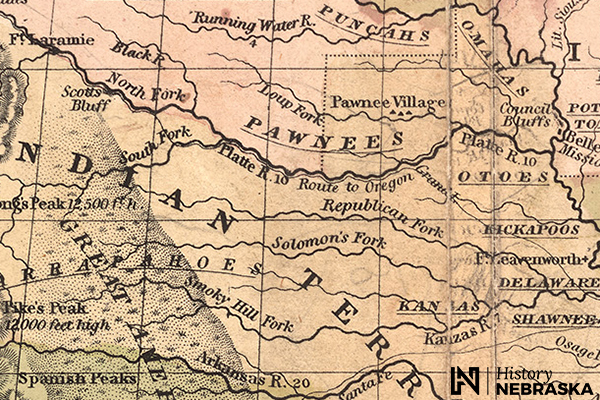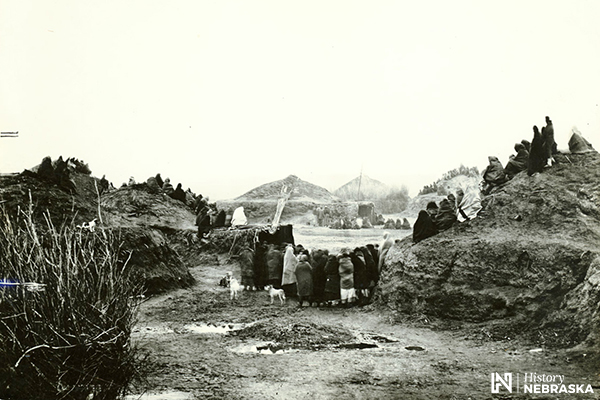Have you ever wondered how the Republican River got its name? The name is older than the Republican Party and has a surprising origin.
By David L. Bristow, Editor

Have you ever wondered how the Republican River got its name? Gov. Frank Morrison, a Democrat, used to tease his Republican friends by asking, “Is it because it’s so shallow or so crooked?”
Jokes aside, the connection to the party seems obvious, doesn’t it? With few exceptions, Nebraska has been majority Republican since the Civil War.
But look at the center of this 1839 map detail from Mitchell’s School and Family Geography. The “Republican Fork” had its name long before the Republican Party was organized in the 1850s.
Might the name refer to Jefferson’s and Madison’s followers? Opposing Hamilton’s Federalists, they usually called themselves Republicans or sometimes Democratic-Republicans.
But the name is older than that too. At least by the 1780s the river was known to French traders as “Fourche des Republiques”—the Forks of the Republicans. Who were the Republicans? The people living there at the time were a band of Pawnees who called themselves Kitkehahki, the Little Earth-Lodge people.
For reasons not entirely clear, French traders began referring to the Kitkehahkis as the Republicans. At that time, a “republican” was anyone who believed in government without a king or aristocracy. Perhaps the Kitkehahkis’ ways impressed the traders as an alternative to their homeland’s highly-centralized monarchy. Desire for a republic was gaining strength in France—as King Louis XVI was soon to find out.

Pawnee Loup Fork Village, near Genoa, 1871. Though this photo is a century later and near a different river, it shows what a Pawnee earth lodge village looked like. Pawnee settlements were much larger prior to epidemics that began in the 1790s. A large village might hold more than a hundred lodges and several thousand people. Traders would have noticed how such large, densely populated communities were governed.
Sources:
Bleed, Ann, Jim Barr, Dayle Williamson, and Gayle Starr, “The Creation of Nebraska’s Natural Resource Districts,” Nebraska History 97 (Winter 2016), 211. (Frank Morrison quote)
Bozell, John. R., “Earth Lodges,” Encyclopedia of the Great Plains, David J. Wishart, Editor (Lincoln, University of Nebraska Press, online edition, 2011).
Echo-Hawk, Walter, Sea of Grass: A Family Tale from the American Heartland (Golden, CO: Fulcrum Publishing, 2018). (Kitkehahki)
Richardson, A.T., “The Pawnee Republic,” The Conservative (Nebraska City), Jan. 31. 1901, 6. (Origins of Republican River name)



